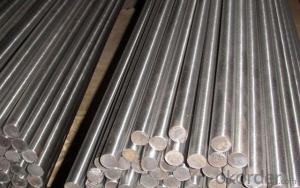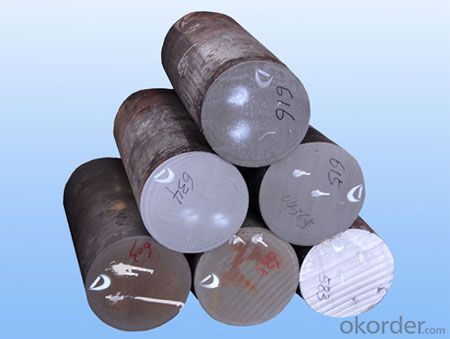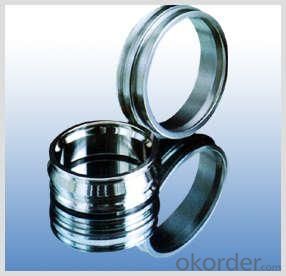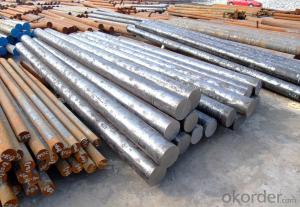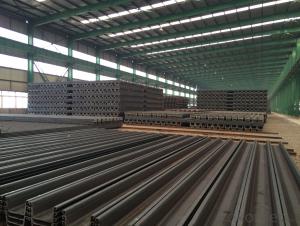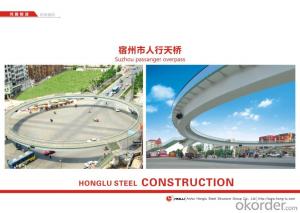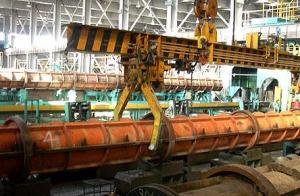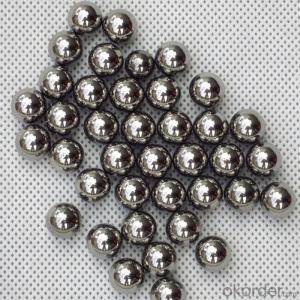Stainless light steel rail made in China
- Loading Port:
- Tianjin
- Payment Terms:
- TT or LC
- Min Order Qty:
- 10000 m.t.
- Supply Capability:
- 1000 m.t./month
OKorder Service Pledge
OKorder Financial Service
You Might Also Like
Product Description:
OKorder is offering Stainless light steel rail made in China at great prices with worldwide shipping. Our supplier is a world-class manufacturer of steel, with our products utilized the world over. OKorder annually supplies products to European, North American and Asian markets. We provide quotations within 24 hours of receiving an inquiry and guarantee competitive prices.
Product Applications:
Stainless light steel rail made in China are ideal for structural applications and are widely used in the construction of buildings and bridges, and the manufacturing, petrochemical, and transportation industries.
Product Advantages:
OKorder's Stainless light steel rail made in China are durable, strong, and resist corrosion.
Main Product Features:
· Premium quality
· Prompt delivery & seaworthy packing (30 days after receiving deposit)
· Corrosion resistance
· Can be recycled and reused
· Mill test certification
· Professional Service
· Competitive pricing
Product Specifications:
Grade | AISI 52100, ASTM E52100, DIN 1.3505,JIS SUJ2, GCr15 |
Dimensions | Diameter: 30-60mm Length: 2000-13000mm or as required |
Shape | Round Bar |
Type | Alloy Steel Bar |
Delivery Condition | Black Surface |
Material | Bearing Steel |
Technique | Hot Rolled |
Usage and Applications of Bearing Steel Round Bar
Bearing steels are used for ball and roller bearing applications and are comprised of low carbon steels and high carbon through harden able steel.
First the famous 1C-1.5Cr steel from which the majority of bearings are made. Its structure is apparently well-understood and the focus is on purity in order to avoid inclusions which initiate fatigue during rolling contact. Then there is the M50 steel and its variants, from which bearings which serve at slightly higher temperatures in aeroengines are manufactured, based on secondary-hardened martensite.
Tapered roller bearing are generally used to support combined load mainly consisting of radial load. Their cups are separable for easy assembling ,During mounting and using, radial clearance and axial clearance can be adjusted and preloaded mounting can be made.
Packaging & Delivery of Bearing Steel Round Bar
Packaging Detail: ASTM 52100 Steel in seaworthy packing or on customer request; Packed in bundles with standard export sea-worthy package or as customer require
Delivery Detail: 45 days after confirmed
Trade terms: FOB, CFR, CIF ou as customer's required
MOQ: 25 tons or at customer's demands. If the quantity is good, the price will be better.
Processing of Bearing Steel Round Bar
The processing of Bearing Steel Round Bar is hot rolled (strictly control sulphur, phosphorus and non-metallic inclusions content and distribution)
Chemical Composition of Bearing Steel Round Bar
C | Si | Mn | Cr | Ni | Cu |
Equal or less than | |||||
0.95-1.05 | 0.15-0.35 | 0.25-0.45 | Cr:1.40-1.65 | 0.30 | 0.25 |
All products' chemical composition and specification can be design according to customers' requirement.
Note of Bearing Steel Round Bar
1. According to national standard (GB) for our products, if not, supply according to national standards (GB) or agreement.
2. We can not only provide electric furnace +LF+VD and electros lag re-melting (ESR) steel forging materials, but also forging products of piece, bar, etc.
3. Our company is equipped with roll equipment and can provide our customers with roll billets or finished.
4. Please send us your detailed specifications when inquire. We will reply to you ASAP.
5. Certificate of quality is issued in English, in addition the normal terms, production process, the mechanical property (yield strength, tensile strength, elongation and hardness. forged ratio, UT test result, Grain size, heat treatment methods and the sample of is shown on the certificate
FAQ:
Q1: How do we guarantee the quality of our products?
A1: We have established an advanced quality management system which conducts strict quality tests at every step, from raw materials to the final product. At the same time, we provide extensive follow-up service assurances as required.
Q2: How soon can we receive the product after purchase?
A2: Within three days of placing an order, we will begin production. The specific shipping date is dependent upon international and government factors, but is typically 7 to 10 workdays.
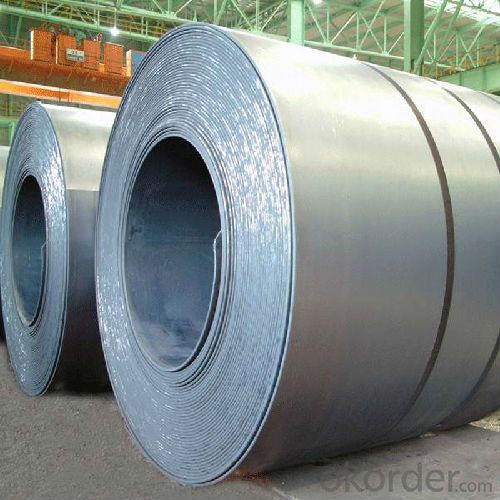
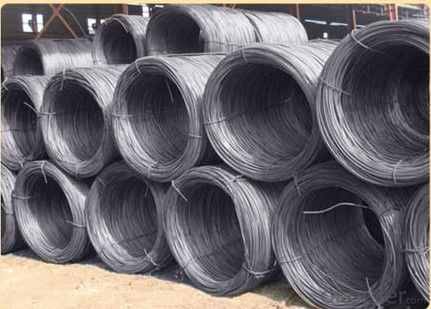
- Q: How does special steel contribute to the aerospace defense machinery industry?
- Special steel plays a critical role in the aerospace defense machinery industry by providing the necessary strength, durability, and performance required for various components and systems. Firstly, special steel alloys are used in the manufacturing of aircraft structures, such as wings, fuselage, and landing gear. These components require materials that can withstand extreme forces, temperature fluctuations, and corrosive environments. Special steel alloys possess unique properties, including high strength-to-weight ratio, excellent fatigue resistance, and resistance to corrosion, making them ideal for ensuring the structural integrity and longevity of aerospace defense machinery. Moreover, special steel is essential for producing engine components, including turbine blades, shafts, and casings. These parts operate under extreme conditions, such as high temperatures, pressures, and rotational speeds. Special steel alloys with high heat resistance, excellent mechanical properties, and good creep resistance are crucial for ensuring optimal engine performance, fuel efficiency, and reliability. In addition to structural and engine components, special steel is used in the manufacturing of various defense systems, such as missile guidance systems, radar systems, and communication equipment. These systems require materials that offer electromagnetic compatibility, high strength, and resistance to vibration and shock. Special steel alloys with specific electromagnetic properties, such as low magnetic permeability or high electrical conductivity, contribute to the efficient functioning of these systems. Furthermore, the aerospace defense machinery industry heavily relies on special steel for the production of precision tools, cutting blades, and molds used in the manufacturing process. These tools must possess high hardness, wear resistance, and dimensional stability to ensure accurate and efficient processing of complex components. Overall, special steel is a crucial enabler for the aerospace defense machinery industry as it provides the necessary strength, durability, and performance required for the demanding and often harsh operating conditions in this sector. The unique properties of special steel alloys contribute to the development of advanced and reliable aerospace defense machinery, enhancing the capabilities and safety of military and defense operations.
- Q: How does special steel contribute to the agricultural sector?
- Special steel contributes to the agricultural sector in several ways. Firstly, special steel is known for its strength and durability, making it an ideal material for manufacturing various agricultural machinery and equipment. This includes tractors, plows, harvesters, and irrigation systems, among others. These machines require robust and reliable components that can withstand the demanding conditions of agricultural work, and special steel provides the necessary strength and resistance to wear and tear. Additionally, special steel can be used to produce high-quality cutting tools that are essential in farming operations. Implements such as sickles, scythes, and pruning shears need to have sharp and durable blades to efficiently cut through vegetation. Special steel's hardness and strength make it a suitable material for manufacturing these tools, ensuring they retain their sharpness even after prolonged use. Furthermore, special steel can contribute to the agricultural sector by enabling the construction of sturdy and durable infrastructure. Agricultural buildings, storage facilities, and fencing often require strong and corrosion-resistant materials to withstand the elements and protect crops, livestock, and equipment. Special steel, with its resistance to rust and structural integrity, can be used in the construction of barns, silos, sheds, and fencing, providing long-lasting and reliable structures. In conclusion, special steel plays a crucial role in the agricultural sector by providing the necessary strength, durability, and corrosion resistance required for the manufacturing of machinery, cutting tools, and infrastructure. Its properties contribute to improved efficiency, productivity, and reliability in agricultural operations, ultimately benefiting farmers and the overall agricultural industry.
- Q: What are the properties of shock-resistant alloy steel?
- Shock-resistant alloy steel is a type of steel that possesses specific properties that make it highly resistant to shock and impact. These properties include high tensile strength, toughness, and hardness. It is also known for its ability to withstand sudden changes in temperature, making it suitable for applications in extreme environments. Additionally, shock-resistant alloy steel has excellent fatigue resistance, corrosion resistance, and wear resistance, making it ideal for use in industries such as aerospace, automotive, and defense.
- Q: What are the environmental considerations of using special steel?
- Special steel production has significant environmental considerations. The extraction and processing of raw materials, such as iron and coal, contribute to deforestation, habitat destruction, and greenhouse gas emissions. Moreover, the high energy requirements during steel production result in carbon dioxide emissions, contributing to climate change. Special steel also often requires the use of alloying elements, such as chromium and nickel, which can lead to toxic waste and pollution if not properly managed. Therefore, careful monitoring and implementation of sustainable practices are crucial to minimize the environmental impact associated with using special steel.
- Q: What are the different types of corrosion-resistant steel?
- There are several types of corrosion-resistant steel, including stainless steel, galvanized steel, weathering steel, and nickel alloys. Each of these types has specific properties that make them resistant to corrosion in various environments and applications.
- Q: What are the main corrosion resistance properties of special steel?
- The main corrosion resistance properties of special steel include high resistance to rust, oxidation, and corrosion in various environments, such as acidic, alkaline, and marine conditions. Special steel is often alloyed with elements like chromium, nickel, and molybdenum, which form a protective layer on the surface and enhance its resistance to corrosion. Additionally, special steel may have a low carbon content, reducing the likelihood of corrosion caused by carbide precipitation. These properties make special steel a reliable choice for applications where resistance to corrosion is crucial, such as in the construction, automotive, and aerospace industries.
- Q: How does corrosion-resistant steel protect against chemical attacks?
- Corrosion-resistant steel protects against chemical attacks by forming a protective oxide layer on its surface, which acts as a barrier against corrosive substances. This oxide layer is highly stable and prevents the steel from reacting with chemicals, thus preventing corrosion and degradation of the material.
- Q: What are the characteristics of tool steel?
- Tool steel is a type of steel that possesses several distinctive characteristics. Firstly, it is known for its exceptional hardness, making it highly resistant to wear and abrasion. Additionally, tool steel has excellent toughness and strength, allowing it to withstand high impact forces without fracturing. It also exhibits good heat resistance, retaining its hardness and strength even at elevated temperatures. Another notable characteristic of tool steel is its ability to be easily shaped and machined, making it a preferred choice for manufacturing tools and equipment. Overall, the key attributes of tool steel include hardness, toughness, strength, heat resistance, and machinability.
- Q: What are the different methods of protecting special steel against corrosion?
- There are several methods available for protecting special steel against corrosion. Some of the commonly used methods include: 1. Coating: Applying a protective coating on the surface of the steel is one of the most effective ways to prevent corrosion. This can be done through various techniques such as hot-dip galvanizing, electroplating, or painting. Coatings act as a barrier, preventing moisture and corrosive substances from coming into contact with the steel. 2. Cathodic protection: This method involves the use of a sacrificial anode or an impressed current to protect the steel. In sacrificial anode cathodic protection, a more reactive metal is connected to the steel, which corrodes instead of the steel. On the other hand, impressed current cathodic protection uses an external power source to provide a continuous flow of electrons, preventing the corrosion process. 3. Alloying: Special steel can be alloyed with specific elements to enhance its resistance to corrosion. For example, stainless steel contains chromium, which forms a passive oxide layer on the surface, protecting it from corrosion. Similarly, adding elements such as nickel, molybdenum, or copper can improve the corrosion resistance of the steel. 4. Passivation: Passivation is a chemical process that involves treating the steel with an acid solution to remove any impurities from the surface. This process promotes the formation of a protective oxide layer, which prevents further corrosion. 5. VCI (Volatile Corrosion Inhibitors): VCI compounds are chemicals that release vapors, which form a protective layer on the surface of the steel. This layer acts as a barrier against moisture and corrosive substances, effectively preventing corrosion. 6. Proper maintenance and cleaning: Regular maintenance and cleaning of the steel surface can significantly extend its lifespan and prevent corrosion. Removing dirt, debris, and corrosive substances from the surface reduces the likelihood of corrosion. It is important to note that the choice of method depends on various factors such as the type of steel, the environment it will be exposed to, and the expected lifespan. Consulting with corrosion experts or engineers can help determine the most suitable method for protecting special steel against corrosion.
- Q: Can special steel be used in the wastewater treatment industry?
- Yes, special steel can be used in the wastewater treatment industry. Special steel, such as stainless steel or corrosion-resistant alloys, is often utilized in the construction of equipment and infrastructure used in wastewater treatment plants. These materials offer high resistance to corrosion, chemicals, and harsh operating conditions, ensuring durability and longevity in wastewater treatment processes. Additionally, special steel's hygienic properties make it suitable for applications where cleanliness and sterilization are crucial.
Send your message to us
Stainless light steel rail made in China
- Loading Port:
- Tianjin
- Payment Terms:
- TT or LC
- Min Order Qty:
- 10000 m.t.
- Supply Capability:
- 1000 m.t./month
OKorder Service Pledge
OKorder Financial Service
Similar products
Hot products
Hot Searches
Related keywords
